In the kaleidoscope of radio broadcasting, where voices crackle through the airwaves and personalities shape cultural moments, one man has stood quietly behind the scenes, camera in hand, preserving the heartbeat of an industry. Art Vuolo, Jr., affectionately dubbed “Radio’s Best Friend,” has spent over five decades capturing the essence of radio through his lens, amassing an unparalleled archive of video airchecks, radio conventions, and special events. His contributions extend far beyond mere documentation; Vuolo has woven himself into the fabric of American radio, forging deep relationships with legendary broadcasters, mentoring aspiring talent, and championing the medium’s vitality. This is the story of Art Vuolo—a man whose passion for radio transformed him into its most dedicated historian, a mentor to many, and a beloved figure whose work ensures that radio’s golden moments live on for future generations.
The Spark of a Lifelong Passion
Art Vuolo’s love affair with radio began in the late 1950s, under the covers in Indianapolis, Indiana, where, as a 13-year-old boy, he tuned into a rocket-shaped plastic radio with an earpiece. Listening to Bernie Herman’s “Night Beat” on WIRE-AM, Vuolo was captivated by the intimacy and immediacy of radio. 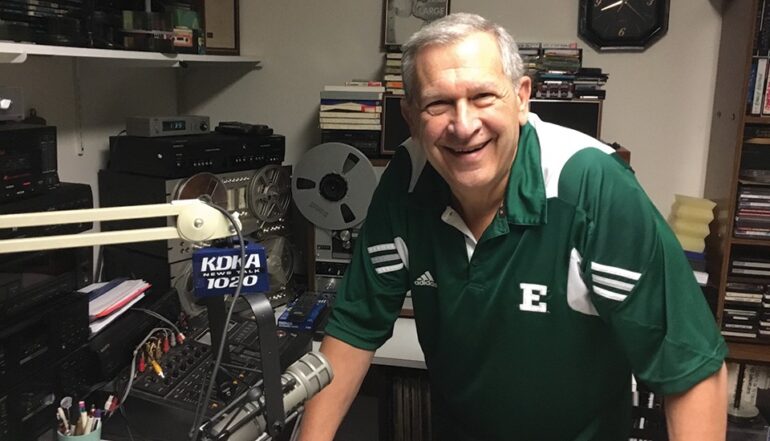 He recalls helping Jim Shelton, a prominent disc jockey at WIBC-AM, with remote broadcasts and record hops, even signing Shelton’s promotional photos with a flourish that rivaled the DJ’s own signature. This early exposure to radio’s magic planted a seed that would define Vuolo’s life. “The radio bug really bit me then,” he told Radio World in 2009.
He recalls helping Jim Shelton, a prominent disc jockey at WIBC-AM, with remote broadcasts and record hops, even signing Shelton’s promotional photos with a flourish that rivaled the DJ’s own signature. This early exposure to radio’s magic planted a seed that would define Vuolo’s life. “The radio bug really bit me then,” he told Radio World in 2009.
By the time his family moved to Ann Arbor, Michigan, in 1962, Vuolo was spinning 45s at high school dances, donning a bright red blazer and giving shout-outs to Discount Records, the local shop that supplied his records. His knack for showmanship was evident, but it was his curiosity about the medium’s inner workings that set him apart. At Eastern Michigan University (EMU), where he earned a B.S. in speech in 1969, Vuolo found a nurturing environment under Professor Bill Swisher, who mentored a lively group of radio enthusiasts at the campus station, WHUR. It was here, while working at Big George’s appliance store, that Vuolo conceived the idea for RADIOGUIDE—a printed directory to help listeners navigate the growing landscape of AM and FM stations. This innovation, born from a desire to boost radio sales, would become a cornerstone of his career.
The Birth of RADIOGUIDE and a Business Legacy
In 1972, Vuolo founded The RADIOGUIDE People, Inc., turning his college idea into a national enterprise. Over the next 34 years, the company published over 100 million station directories, distributed through partnerships with major corporations like Ford Motor Company, United Airlines, and Nabisco. These guides, tailored city by city, helped travelers and locals alike find their favorite programming. At its peak in 1995, Vuolo produced 10 million college football RADIOGUIDES for conferences like the Big Ten and Pac-10, a project that allowed him to purchase his home in Novi, Michigan. “I made enough money from that to buy my house,” he recalled in a 2009 Radio World interview.
The RADIOGUIDE venture showcased Vuolo’s entrepreneurial spirit and his ability to connect radio stations with their audiences in a tangible way. However, economic downturns and the rise of the internet eventually led to the company’s closure in 2006. Despite this, Vuolo’s vision for making radio accessible left a lasting impact, demonstrating his knack for identifying and filling gaps in the industry.
Vuolo Video Air-Chex: A New Way to See Radio
While RADIOGUIDE was a triumph, Vuolo’s most enduring contribution to radio came in 1977, sparked by a serendipitous encounter. Watching a black-and-white videotape of a color 8mm film shot by San Diego DJ Shotgun Tom Kelly for KFMB-FM’s “B-100,” Vuolo was struck by a revelation: “Wow… a video aircheck. What a concept!” This moment birthed Vuolo Video Air-Chex, a groundbreaking project that offered an inside look at radio studios while personalities were on air. For the first time, fans and industry professionals could see the energy, chaos, and charisma that defined radio’s golden era.
Vuolo’s airchecks weren’t just recordings; they were educational tools and time capsules. He traveled across the country, visiting over 700 radio stations and capturing the work of iconic personalities like John Records Landecker, Dick Biondi, and Steve Dahl. His videos, featured at countless radio conventions, offered a rare glimpse into the craft of broadcasting. By 2015, Vuolo’s collection had grown to over 1,000 videos and 6,000 audio cassettes, representing more than 10,000 hours of radio history. This archive, one of the largest of its kind, earned him a permanent exhibit at the National Radio Hall of Fame in Chicago, titled “A History of the American Disc Jockey.” As Radio Hall of Fame Chairman Kraig Kitchen noted, the exhibit honors “all the hours and years that Art has toiled at properly recording the best efforts in radio studios for decades and decades.”
The significance of Vuolo’s video airchecks lies in their ability to preserve radio’s ephemeral nature. Unlike music or television, radio broadcasts vanish into the ether unless captured. Vuolo’s work ensured that moments like Steve Dahl’s infamous Disco Demolition at Comiskey Park in 1979 or the WRKO 50th Anniversary Reunion were not lost to time. His videos also served as training tools for aspiring broadcasters, offering a visual masterclass in pacing, personality, and production. “What I’m known for more than anything now is being an archivist,” Vuolo said, “preserving radio for future generations.”
Behind the Scenes: A Chronicler’s Journey
Vuolo’s travels were a testament to his dedication. Armed with a camera and an infectious enthusiasm, he crisscrossed the United States, documenting radio stations from WLS in Chicago to Z-100 in New York. His work wasn’t glamorous—long hours, tight budgets, and the constant hustle of pitching sponsors—but it was fueled by a genuine love for the medium. Vuolo’s ability to gain access to studios and conventions stemmed from his reputation as a trusted figure, someone who respected the craft and the people behind it. “I try to bust my butt for everybody,” he told R&R in 1999. “The only person I ever screw over is myself.”
His behind-the-scenes footage captured more than just on-air moments. Vuolo recorded radio reunions, memorials, and industry events, preserving the camaraderie and quirks of the broadcasting world. For example, his video of the 700 WLW Cincinnati reunion in 2020, featuring radio greats from the Jacor years, is a nostalgic treasure for fans and historians alike. His 20th anniversary documentary on radio’s response to 9/11, aired on hundreds of stations, offered a unique perspective on how broadcasters shaped public discourse during a national tragedy. “It’s the only such special that shows how RADIO reacted on that terrible day,” Vuolo noted.
Relationships That Defined an Industry
Vuolo’s nickname, “Radio’s Best Friend,” wasn’t just a catchy moniker coined by Scott Shannon in the early 1980s and popularized by Radio & Records in 1985. 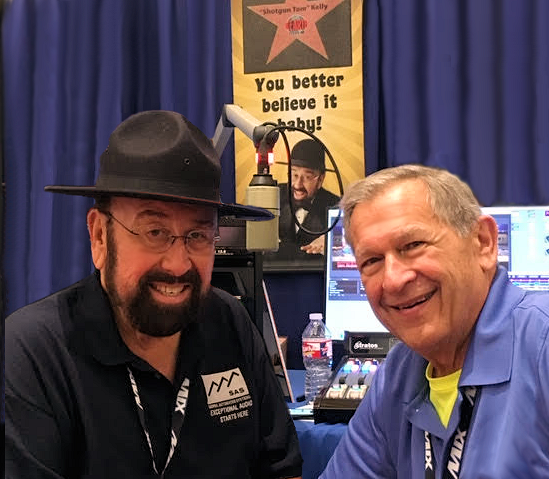 It was a reflection of the genuine connections he forged with broadcasters. From Larry Lujack to Casey Kasem, Vuolo’s friendships spanned the spectrum of radio royalty. Tom Kent, a legendary DJ and record executive, wrote in 2006, “Art Vuolo, Jr. is a one-man walking campaign for the radio industry who actually believes that honesty, and being nice to people, is still in vogue.” Kent’s words, echoed by many, highlight Vuolo’s role as a connector and confidant.
It was a reflection of the genuine connections he forged with broadcasters. From Larry Lujack to Casey Kasem, Vuolo’s friendships spanned the spectrum of radio royalty. Tom Kent, a legendary DJ and record executive, wrote in 2006, “Art Vuolo, Jr. is a one-man walking campaign for the radio industry who actually believes that honesty, and being nice to people, is still in vogue.” Kent’s words, echoed by many, highlight Vuolo’s role as a connector and confidant.
His relationships were built on mutual respect and a shared passion for radio. John Gehron, a veteran programmer, and Lisa Miller, a radio executive, have worked to find a permanent home for Vuolo’s archive, recognizing its cultural value. Shotgun Tom Kelly, a close friend, called during an interview with Michigan Today in 2022, underscoring the personal bonds Vuolo nurtured. “Art’s been a good and reliable friend for over 55 years,” wrote another colleague, praising his encyclopedic knowledge of radio history.
Vuolo’s mentorship extended to aspiring broadcasters, many of whom credit him with helping them break into the industry. At EMU, he inspired peers like Dennis Beagen, who recalled Vuolo’s infectious excitement as he arrived with reel-to-reel recordings of AM jocks. “Art would walk in almost panting with excitement,” Beagen said, noting how Vuolo’s passion was contagious.
Broadcasting Philosophy and Leadership Style
Vuolo’s philosophy is rooted in authenticity and service. “I want to leave something of a legacy,” he told R&R in 1999. “In the radio business, I’d like to see a little less business and a whole lot more radio.” This belief guided his work, from producing airchecks to mentoring talent. He saw radio as a personal medium, capable of soothing or energizing listeners through the human voice. His leadership style was collaborative and unassuming, often described as “selfless” by colleagues. Rather than seeking the spotlight, Vuolo focused on elevating others, whether by capturing their best moments or advocating for their inclusion in his archive.
His approach to archiving was meticulous yet approachable. Vuolo didn’t just record; he curated, ensuring that each video told a story. His website, vuolovideo.com, remains a hub for radio enthusiasts, offering DVDs of airchecks, reunions, and even University of Michigan football games—a nod to his other passion. His ability to balance professionalism with warmth earned him the trust of stations and personalities alike.
Achievements and Recognition
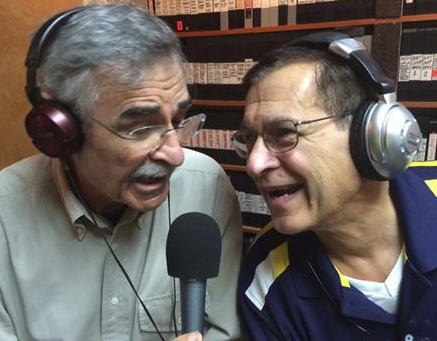 Vuolo’s contributions have not gone unnoticed. In 2001, he received the Rockwell Award from The Conclave, a prestigious honor in the radio industry. In 2018, he was awarded a Lifetime Achievement Award from Talkers Magazine, cementing his status as a pillar of the field. The Ypsilanti Area Jaycees named him a lifetime member, and he was the final recipient of the Bob Ufer Quarterback Club Yellow Jacket Award for his work documenting Michigan football. Most significantly, his archive’s inclusion in the National Radio Hall of Fame ensures that his legacy will endure. “It’s the greatest moment of my life,” Vuolo said of the exhibit in a 2018 podcast.
Vuolo’s contributions have not gone unnoticed. In 2001, he received the Rockwell Award from The Conclave, a prestigious honor in the radio industry. In 2018, he was awarded a Lifetime Achievement Award from Talkers Magazine, cementing his status as a pillar of the field. The Ypsilanti Area Jaycees named him a lifetime member, and he was the final recipient of the Bob Ufer Quarterback Club Yellow Jacket Award for his work documenting Michigan football. Most significantly, his archive’s inclusion in the National Radio Hall of Fame ensures that his legacy will endure. “It’s the greatest moment of my life,” Vuolo said of the exhibit in a 2018 podcast.
The Significance of Vuolo’s Work
Vuolo’s recordings are more than nostalgic artifacts; they are a vital record of radio’s evolution. By capturing the behind-the-scenes dynamics of stations, he preserved the human element of broadcasting—the banter, the improvisation, the raw energy that defined an era before automation and playlists took over. His videos of special events, like the Z-95.5 Detroit Radio Reunion in 1988 or the Radio Dream Lunch in Los Angeles, celebrate the community that radio fostered. For future generations, Vuolo’s archive offers a window into a time when radio was the dominant medium, shaping culture and connecting listeners across distances.
A Lasting Legacy
Today, at 77, Vuolo remains active, fielding requests for clips and preparing for his 43rd season recording University of Michigan football games. His home in Novi is a shrine to his dual passions—radio and Wolverines football—with shelves lined with tapes and DVDs. Despite the challenges facing terrestrial radio, from iPods to streaming services, Vuolo remains optimistic about its future, emphasizing the power of local content. “Local information is the only thing that will save AM and FM,” he told Radio World in 2009.
Art Vuolo is more than an archivist; he is a storyteller, a mentor, and a friend to an industry that thrives on connection. His work reminds us that radio is not just about sound—it’s about the people who bring it to life. Through his lens, we see the faces behind the voices, the chaos of the studio, and the joy of a medium that, for Vuolo, will always be worth preserving. As one colleague put it, “Everyone in radio owes a debt of gratitude to our best friend.”
Written by: Barry Wright
Similar posts
Most Liked Airchecks
Events
Support Aircheck Radio
Copyright 2025 Aircheck Radio is a proud listener supported 501(c)(3) nonprofit organization

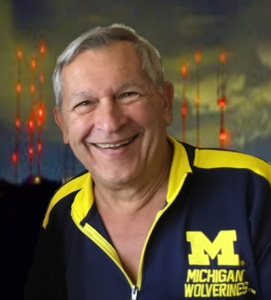

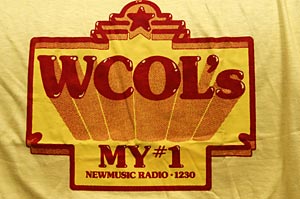

Post comments (0)